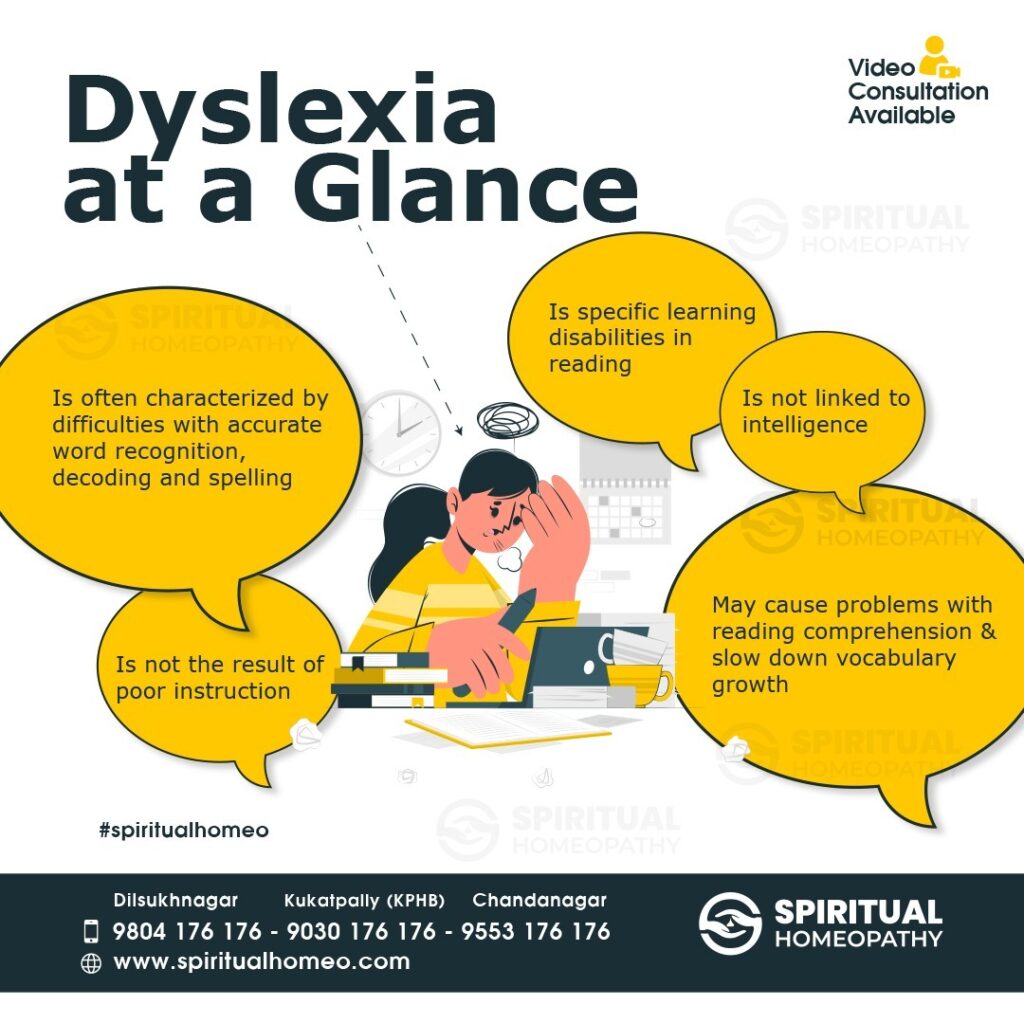Dyslexia is a neurological condition that affects a person’s ability to read, write, and spell. It is a lifelong condition that often becomes apparent during early childhood. Here is an overview of dyslexia:
Definition:
- Dyslexia is a specific learning disability that primarily affects reading and may also impact spelling, writing, and even speaking to some extent.
Neurological Basis:
- Dyslexia is thought to have a neurological basis, often involving differences in the way the brain processes language-related tasks, particularly in the areas associated with phonological processing.
Symptoms:
- Difficulties in accurate and/or fluent word recognition
- Problems with spelling
- Challenges in decoding and encoding words
- Slow and laborious reading
- Difficulty in understanding written text
- Poor phonological awareness (awareness of the sound structure of language)
Prevalence:
- Dyslexia is a common learning disability, affecting about 5-10% of the population.
Onset:
- Dyslexia often becomes apparent in early childhood when a child begins to learn to read. However, it may not be formally diagnosed until later in school.
Persistence:
- Dyslexia is a lifelong condition, but with appropriate support and interventions, individuals with dyslexia can develop effective reading and writing skills.
Causes:
- The exact causes of dyslexia are not fully understood, but it is believed to involve a combination of genetic, neurological, and environmental factors.
Diagnosis:
- Diagnosis typically involves a comprehensive assessment by educational and psychological professionals, including tests of reading and language abilities.
Interventions:
- Multisensory and structured literacy approaches are often used to help individuals with dyslexia develop their reading and writing skills.
- Early intervention and tailored educational strategies are crucial for managing dyslexia effectively.
Famous Individuals with Dyslexia:
- Many successful and accomplished individuals, including entrepreneurs, scientists, artists, and actors, have dyslexia. Examples include Richard Branson, Steven Spielberg, and Whoopi Goldberg.
It’s important to note that individuals with dyslexia often have unique strengths and talents, and with appropriate support, they can achieve success in various areas of life. Early identification and intervention are key factors in helping individuals with dyslexia overcome challenges and reach their full potential.




